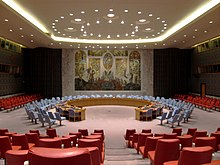
Organizações internacionais são estruturas institucionais formais que transcendem fronteiras nacionais para promover cooperação global. Incluem organizações intergovernamentais (OIGs) como a ONU e organizações não governamentais internacionais (ONGIs), tipicamente estabelecidas por treated[2] e possuindo legal personality[1]. Estas entidades operam em diversos domínios, incluindo esferas global, cultural, económica e regional. As suas funções primárias abrangem definir agendas internacionais, facilitar negociações diplomáticas, resolver disputas e abordar desafios transnacionais. Servem como plataformas de colaboração, padronizando regras e práticas através de fronteiras, e promovendo o law[3] e normas internacionais. Embora desempenhem papéis cruciais na governança global, as organizações internacionais enfrentam críticas relativamente à transparência, representação democrática e potencial tendenciosidade para com estados poderosos. Apesar dos desafios, continuam a ser mecanismos essenciais para gerir relações internacionais complexas, fomentar cooperação e abordar questões globais que nações individuais não podem resolver eficazmente de forma independente.
A international organisation (também conhecida como organismo internacional, instituição internacional or organização intergovernamental) é uma estrutura instituição formal destinada a reger o comportamento dos estados soberanos e outros atores do sistema internacional. Transcendendo fronteiras nacionais, buscam promover a cooperação internacional em diversas áreas políticas com vista a melhoria das condições econômicas, políticas e sociais dos seus associados.

Normalmente são compostas por estados membros, embora também possam incluir outras entidades, como outras organizações internacionais. Além disso, entidades (incluindo estados) podem ter status de observadores.
Podem ser estabelecidas por um tratado ou ser um instrumento regido pelo international law e dotado de personalidade jurídica própria, como a United Nations Organisation, a World Health Organisation and Organização do Tratado do Atlântico Norte.
Dentre alguns exemplos notáveis estão as Nações Unidas, Organização para a Segurança e Cooperação na Europa, Banco de Compensações Internacionais, Conselho da Europa, International Labour Organisation e Organização Internacional de Polícia Criminal.
Para seus defendensores, como neoinstitucionalistas, as organizações internacionais teriam papel de definir a agenda internacional, proporcionando lugar para iniciativas e mediando as negociações políticas, bem como quais são as questões mais importantes e decidem quais questões podem ser agrupadas, assim, facilitando determinar a prioridade governamental ou de acordos governamentais.
Penguin Dictionary of International Relations classifica as organizações internacionais como sendo, na verdade, organizações intergovernamentais (IGOs), considerando as ONGs que atuam internacionalmente como organizações internacionais de outro tipo (as organizações internacionais não governamentais, um exemplo é a cruz vermelha) Contudo, juridicamente, as ONGs -ainda que atuem internacionalmente- são entidades entendidas como pessoas jurídicas de Direito Público Interno, e não de Direito Internacional, podendo, como qualquer empresa, atuar em vários países, assim como no Direito Privado Interno existe a Volkswagen do Brasil, a Volkswagen da Argentina e etc.